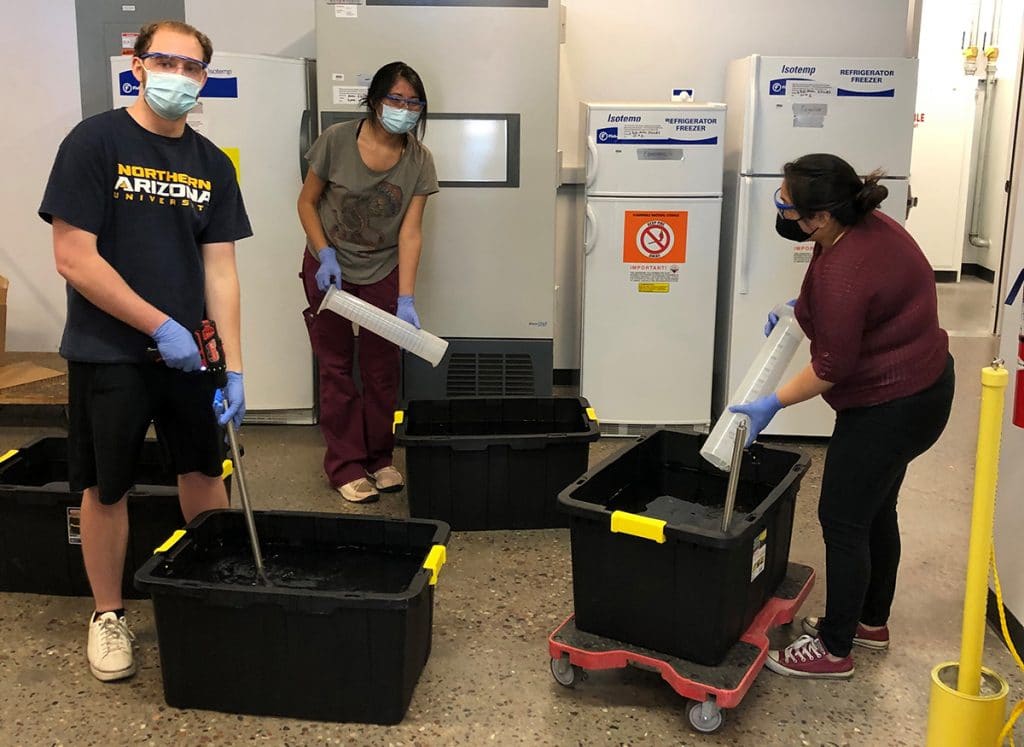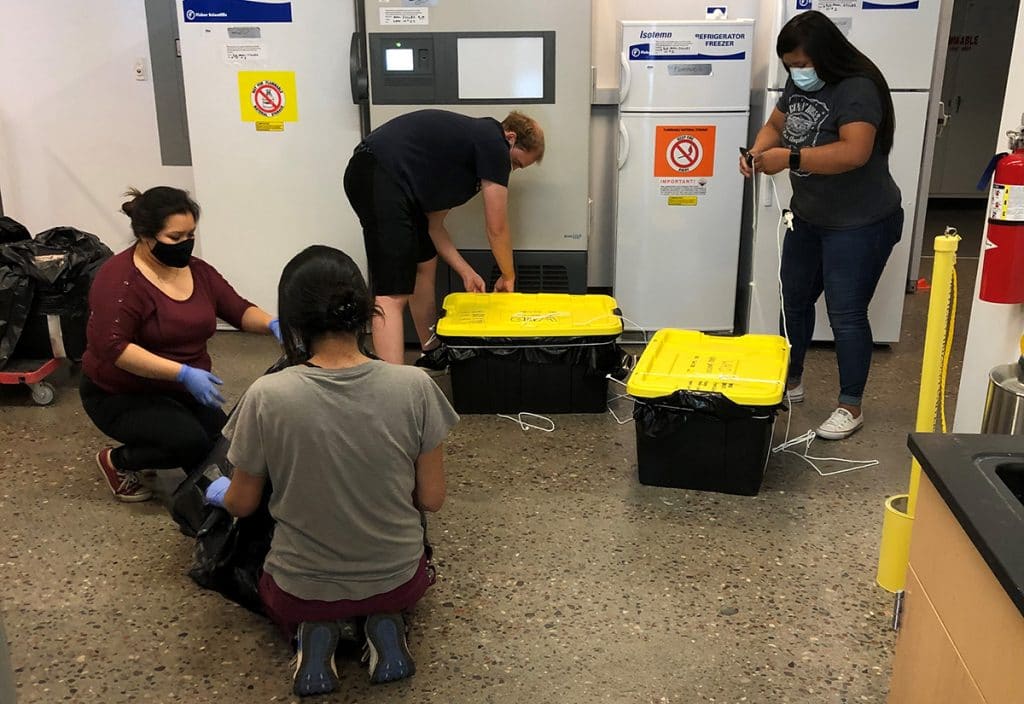A lab at Northern Arizona University is using its resources to produce hand sanitizer to donate to the Navajo Nation.
Chemistry professor Jani Ingram conducts environmental sampling and analyses in her lab as part of her work with the Native American Cancer Prevention program; she studies the effects of abandoned uranium mines, including increased rates of cancer, on the Navajo Nation. Last week, she and several student researchers focused their efforts on making hand sanitizer, which has been in short supply since the pandemic began months ago. Chad Hamill, the vice president of Native American Initiatives at NAU, heard about a lab at UC Berkeley producing sanitizer and asked Ingram if her lab could do the same.
“I had a call with the UC Berkeley folks, and it seemed possible for us to make large amounts of the sanitizer,” she said. “We then got connected to a grassroots organization, the Kinlani Mutual Aid, who has been working to distribute hand sanitizer to tribal folks in need. It has been a great team effort.”
Student researchers Andee Lister, Dana Clashin, Marissa Mares, all of whom are members of the Navajo Nation, and Jason Farmer contributed their efforts to producing the sanitizer, which had to be done in a room that can handle flammable liquids and an area large enough to handle the mixing containers. Farmer, a master’s student in analytical chemistry, said the process included mixing reagents with ethanol, then adding hydrogen peroxide to sterilize the mixture. They made about 80 gallons of sanitizer in one afternoon. For Farmer, it was a great way to help people and put his chemistry skills to use.

“My parents live on the Navajo Nation, and I am extremely grateful for non-profit groups and grassroots organizations that have been providing donations to the Navajo Nation during this time,” she said. “The hand sanitizer project was something Dr. Ingram talked about recently, and I thought, ‘what a great way to give back to the communities that we work with on the Navajo Nation.”
This need is especially critical now as about 30 percent of homes in the Navajo Nation do not have running water, making the frequent handwashing required to slow the growth of coronavirus difficult. It’s contributed to the tribe having an especially severe outbreak of the disease as well.
“In light of the devastating impact the pandemic has had on the Navajo Nation and other tribes in the region, you can’t overestimate the importance of NAU’s commitment to Native Americans,” Hamill said. “Now more than ever, it was time to step up and walk our talk. I want to thank the multiple individuals and units across NAU, as well as our friends at UC Berkeley, for offering critical support to tribal communities when it matters most.”



